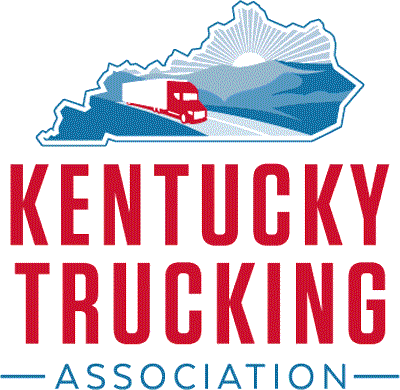The American Transportation Research Institute (ATRI) published a report in July 2022 written by two research analysts, Alex Leslie and Danielle Crownover. The report is about successfully helping people between 18 and 25 into long-term trucking careers.
According to the report, there are efforts on a national level to address shortages. Congress changed the rules for interstate truck driving in November 2022; the new rules went into effect Feb. 7, 2022. The goal is to increase the number of young drivers who can enter the industry. For example, a new national field test allows drivers aged 18-20 to enter a driver apprentice program. Although there are rules to ensure safety, these young drivers can now participate in interstate freight commerce. The program should encourage more potential drivers to consider a trucking career since they are no longer limited to intrastate trips during their first years after high school graduation. ATRI published a report called Predicting Truck Crash Involvement in 2018 to examine how age affects crash risk. A customized Young Driver Assessment Tool is currently being tested; its purpose is to identify young drivers with the same characteristics as safe veteran drivers.
The report also found that diversification efforts are having an effect. Approximately 42.3% of trucking industry drivers are part of a racial minority. That is a 30% increase over the last decade. If you want to find a largely untapped resource, there is still plenty of room for hiring more women, who make up only 7.8% of truck driving jobs.
Additionally if you want to hire more young people, it helps to know what they generally consider to be important.
Diversity matters to millennials (1981-1996) and
Gen Zs (1997-2012). All employees want to contribute to a successful company, be paid well and be valued for their work. However, younger employees differ on specifics.
Millennials are beginning to enter leadership roles. They remember the time before Sept. 11, 2001, and before the internet was available almost everywhere. Although they want work to be engaging and challenging, millennials and Gen Z have greater job loyalty than Gen X (1965-1980), because when they feel committed to their work, it becomes more meaningful. Also, management quality matters to them. But there’s a downside: if they don’t think work is meaningful, they are likely to leave. That might be fine if someone doesn’t fit within a company, but it’s a problem when there are so many open jobs for so few people.
Gen Z experienced the War on Terror, the Great Recession and the pandemic. They want their employers to share their values. However, they only started entering the workforce after 2010, so it’s a little early to understand them.
Millennials and Gen Z employees value flexible, adaptable, creative and tech-savvy businesses. They think work and life are connected, want equality in the workplace, and appreciate mentoring and immediate feedback about their performance throughout the year. Since they want their work to be meaningful, they can be unengaged without that. Millennials, especially, want to learn, grow and advance. Where 69% of older generations thought growth and development were critically important, 87% of millennials do.
One of 2021’s top priorities for the American Transport Research Institute’s Research Advisory Committee was identifying recruitment strategies and industry “best practices” to train and retain younger employees and drivers (ages 18-25). For example, one suggestion was to develop high school trucking clubs. Another was to recruit drivers internally from nondriving jobs. Fortunately, most of the research analysis would also apply to employees who are 26-30.
Each company must decide how to frame their work in a meaningful way for their employees. They will also need to focus on recruiting younger drivers. The ATRI report offers a good starting point in the conclusions section. Key findings based on survey responses are divided into three categories: best practices for recruitment, training and retention.
Recruitment
High pay motivates young employees, but 60% considered other factors as equally or more important. Common responses included having a stable career path and a schedule that allows them to balance work and personal life. A love for driving was another important factor.
Greater transparency about what the job entails would be helpful. Young drivers want a clear understanding of any job expectations and requirements. They would appreciate being able to watch “day in the life” videos or access other content that would help them better understand what a trucking job is like.
Company culture matters to 84% of younger drivers, and 73% have someone in their family with a trucking background who introduced them to the industry. They value community, and they offered concrete suggestions for building it:
- Promoting supportive managers
- Giving employees a firsthand understanding of other roles
- A willingness by managers and other co-workers to provide flexibility when necessary
- Asking for and sharing successful strategies
- Providing casual social opportunities among employees
Training
According to 20% of those surveyed, trainers need more training themselves. Approximately 14% wanted more driving time and more driving variety. Young employees would also appreciate more mentoring to help them gain experience and perspective about how to work better.
Young employees also think training should include topics other than driving. They want to know how to resolve conflicts better, understand other aspects of moving freight such as budgeting, yard work and loading, and learn a wide range of other additional skills that allow them to fit better into the company culture.
Retention
The ability to earn a large, stable income is often why new employees gravitated toward the trucking industry. Raises are a reminder of that and provide a reason to stay.
Apprenticeship programs improve retention. Why? In part, apprenticeship programs convince employees that their employers value them enough to invest in their development. That’s a powerful message.
Relationships between employees matter. That is particularly true for relationships between older drivers and the younger drivers they mentor.
Young drivers like to communicate their concerns to management. Communication can take place directly or through company surveys.
Young drivers like flexible schedules, but they also like consistent schedules. Companies that offer regular home time and hybrid jobs appeal to nontraditional trucking industry employees such as women.
Conclusion
The trucking industry needs to attract younger employees. Doing so currently involves creating optimal work environments for millennials and Gen-Zs.
The most effective practice to retain young drivers in small or large fleets is to increase their pay. Expanded benefits, health insurance and a 401(k) are also important. So are vacation days, sick days or paid leave. Giving drivers control and flexibility (over their hours or route) is helpful, especially if it means more time at home. Finally, young drivers appreciate good management, feedback and mentoring. They also like training opportunities and tuition reimbursement.
The more you make young employees feel they have control over a well-paid career in a positive work environment that will give them opportunities to grow over time, the more likely they will decide to stay with your company.
To download the full report, please visit
https://truckingresearch.org/2022/07/11/integrating-younger-adults-into-trucking-careers.








